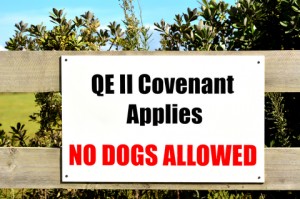 An “evergreen” (or timeless) discussion topic at law conferences, such as the recently concluded ICSC Law Conference in Phoenix (a highly, highly recommended annual event) is the “exclusive use clause.” We’ve written about exclusive use restrictions, too many, many times, too many to furnish only a link or two. [If you want to see one or more of those postings, use “exclusive use” in the search box.] Today, we’ll talk a “little” law and we’ll throw in a bonus at the end.
An “evergreen” (or timeless) discussion topic at law conferences, such as the recently concluded ICSC Law Conference in Phoenix (a highly, highly recommended annual event) is the “exclusive use clause.” We’ve written about exclusive use restrictions, too many, many times, too many to furnish only a link or two. [If you want to see one or more of those postings, use “exclusive use” in the search box.] Today, we’ll talk a “little” law and we’ll throw in a bonus at the end.
Basically, Ruminations will look at the difference between writing “Landlord will not …” and “No part of the Property may be used … .” [Read more…]
Print







Recent Comments